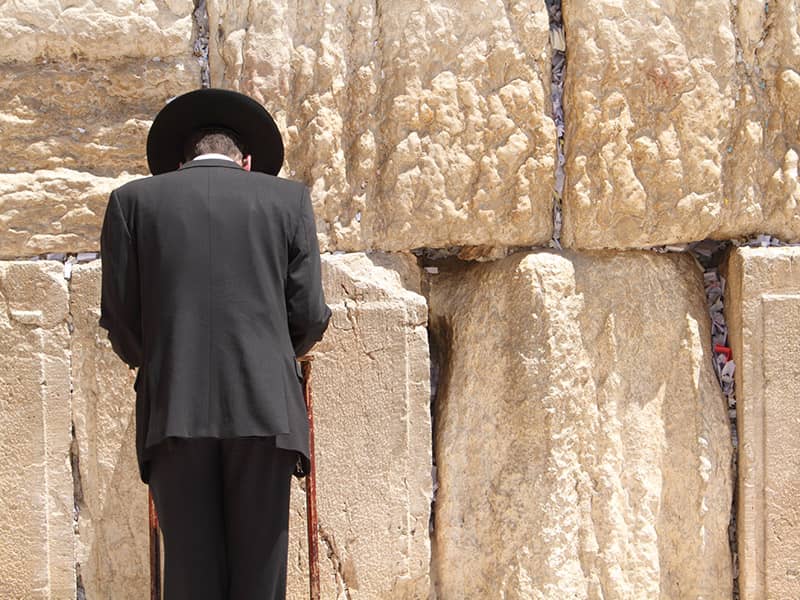Alas, we no longer seem to be bound by such austere and demanding standards. In this generation, we seem to be settling for the kind of teacher who knows about "educational method" and who promises to bring into the classroom enthusiastic spirit, no matter what such a teacher might actually know of the content of the Jewish tradition.
I am afraid that these observations apply all the more pointedly to contemporary rabbis. Some 60 years ago, Mordechai Kaplan, the founder of Reconstructionist Judaism, said to his students for the rabbinate that the trouble with the rabbis of today is that they advertise Judaism: "They tell us how great and wonderful it is--but they do not teach it." That day Kaplan made it very clear he was not demanding that rabbis teach any particular brand or ideology. What he wanted was that rabbis be rooted in authentic Jewish learning and experience, and that their ideas and interpretations should make all who came under their influence want to think and to learn.
The Jewish community worldwide is poorer this week because Rabbi Alexander Schindler, the leader of Reform Judaism for many decades, died in his sleep on Nov. 14 at the age of 75. Alec Schindler became the commanding figure that he was because he was rooted both in the world of Eastern European culture and learning and in an innate personal earlessness.
Schindler was born in 1925 in Munich, Germany. His father was an Eastern European Orthodox Jew who was a Yiddish poet and who worked as a journalist and editor for the most Orthodox of Jewish organizations, Agudath Israel. To the very end of his days, Alec was thoroughly at home in Yiddish. There was always a particular glow in his face and a twinkle in his eye when he spoke in Yiddish.
Schindler was also fearless. When he took the position that the Reform movement should recognize the children of interfaith marriages whose fathers were Jewish, he brought upon himself much grief from fellow Reform Jews and, much more seriously, from the more traditional majority of world Jewry. For many, many centuries there had been universal agreement that in such situations the children of Jewish fathers but not Jewish mothers were not regarded as Jews.
Schindler was moved to insist on making the change for a contemporary reason. The rate of intermarriage was reaching one in two by the 1960s. The effect of Schindler's proposal was to move Reform Judaism a step farther away from the consensus that pertained in the Jewish world on the law of personal status.
Schindler was not deterred. The change that he was proposing would keep many individuals from being lost to the Jewish people and alienated from the synagogue. His critics kept insisting that larger efforts should be mustered to carry out formal conversions of children in this category, but Schindler answered that even if this was done, the Orthodox rabbinic authorities were very unlikely to accept such conversions, over which Reform or Conservative rabbis might officiate.
At the time, in 1978, when Schindler led the battle for "patrilineal descent," as the controversy became known, those who debated the issue thought their decision would result in a major new schism within world Jewry, but we now know that this did not happen. The religious differences that exist between Reform Judaism and the more traditional versions of the Jewish religion had been announced a century and a half ago, and no decision by contemporary Reform leaders could do much to change the status quo of interdenominational relations.
The notion, therefore, that Reform could do anything even more fundamental to define itself in its own right and further separate itself from a tradition it had so forcefully broken with 150 years ago was simply an illusion. Alec Schindler insisted that in the 20th century, Reform Judaism had the right to do what it had done more than a century earlier: to define its own version of Jewish practice. He insisted that the Jewish people as a whole needed to be governed on the principal, above all others, of religious liberty.
The explosions that many people predicted did not happen, because he was right on the matter of religious liberty. The Jews of the world had been operating for nearly 200 years on the assumption that no rabbinic authority could effectively excommunicate anyone else because that person was defining Judaism in a way it had not been understood before. Religious liberty had become the norm, not the heretical exception.
Alec Schindler's personal character was equally important. He was part of the international Jewish community and played a central role in almost every one of its coordinating bodies, in which all kinds of Jews sat and worked together.
He was simply too warm and appealing a person for anyone to hate him or to regard him as the emissary of some destructive force. He knew the secret of how to disagree, very fundamentally, without being disagreeable. Alec Schindler had many critics--but he had no enemies. I can attest to this because I was his critic, very often, but always his friend.

